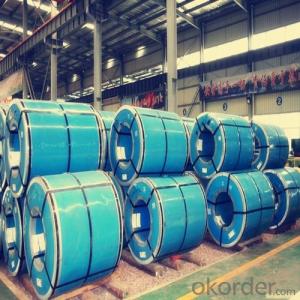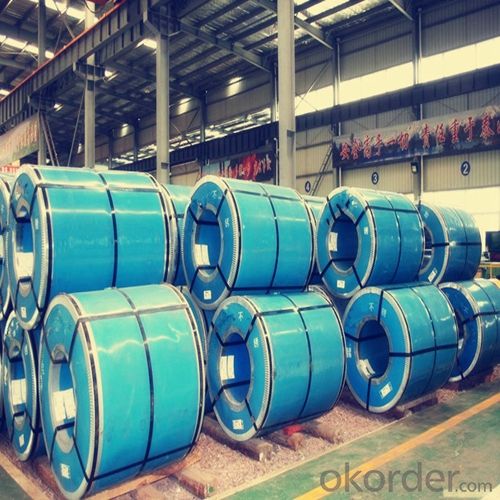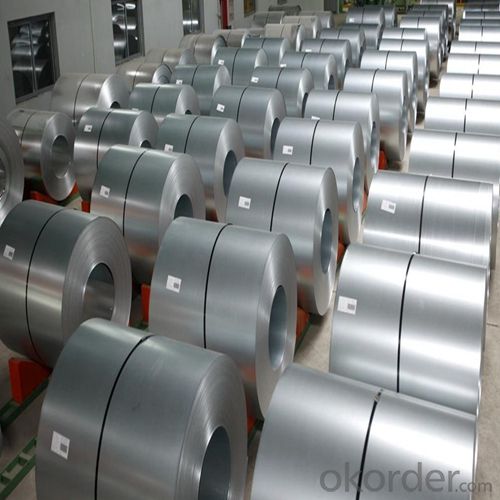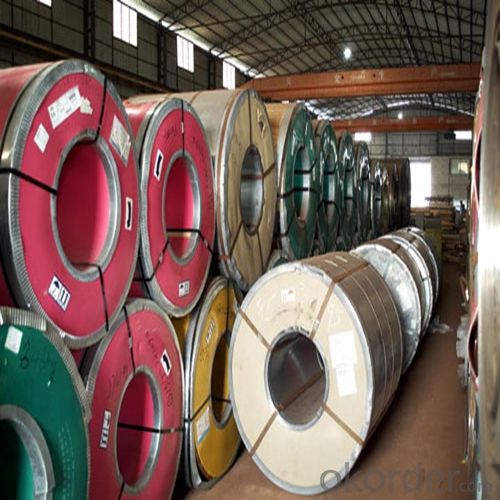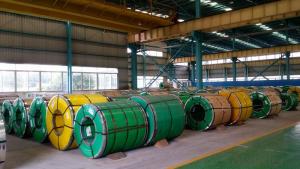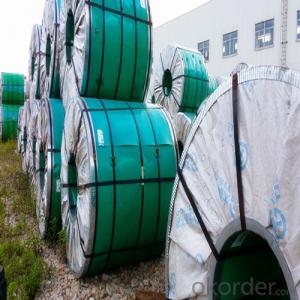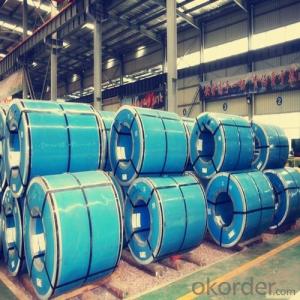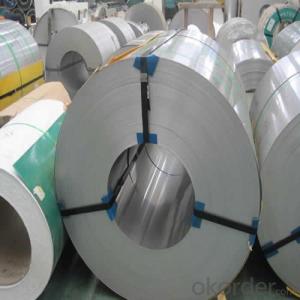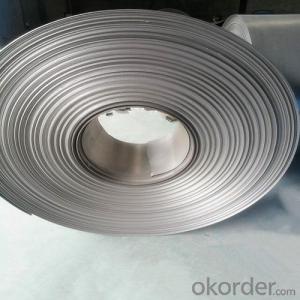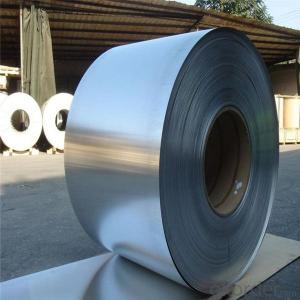Stainless Steel Coil in Hot Rolled Cold Rolled 403
- Loading Port:
- Qingdao
- Payment Terms:
- TT OR LC
- Min Order Qty:
- 25 m.t.
- Supply Capability:
- 8000 m.t./month
OKorder Service Pledge
OKorder Financial Service
You Might Also Like
Stainless Steel Coil Hot Rolled Cold Rolled
1.Structure of Stainless Steel Coil:
Stainless steel coil is a production which not easy rust, acid resistance and corrosion resistance, Stainless steel coil is a new kind of Austenite stainless steel by used Mn, N replace Ni. so it is widely used in light industry, heavy industry, daily necessities and the decoration industry. Stainless steel coil has good corrosion resistance and hot / cold processing performance, instead of stainless steel products for used in the not high of corrosive environment, such as indoor, inland city outdoor etc.
2.Main Features of the Stainless steel coil:
1) High Quality: Using Latest automated control equipment to ensure the quality
2) Best Price: With most automated equipments to ensure our price is lower than the market
3) Fast Delivery: The delivery date within 20 das after get your order
4) Best Service: Our after-sell service team will help you to slove all the problems about the order
3. Stainless steel coil Images
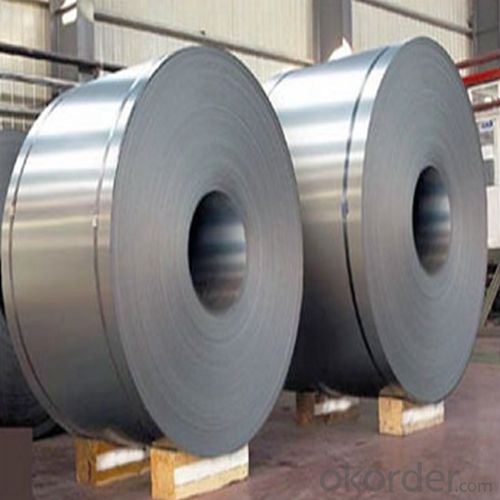
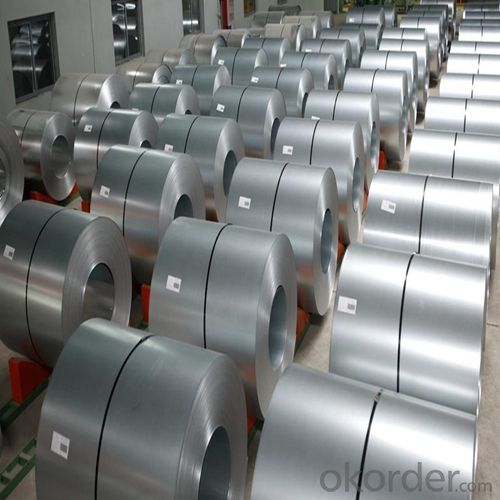
4. Stainless steel coil Specification
Product name: 304 Stainless Steel Coil
Thickness: 0.2mm to 1.5mm
Technical: Cold Rolled
Width: 10mm to 1240mm
Type: 200 Series
Length: As customer's requested
Standard: JIS, SUS
Finish: BA, 2B, 8K, NO.3, NO.4, HL
MOQ: 100 MT
Ship Term: FOB Shenzhen port or CNF import port
Delivery Time: 15 to 20 day after the receive the deposit or LC
Packaging: By wooden pallet, wooden case or according to customer's request
5.FAQ
We have organized several common questions for our clients,may help you sincerely:
1) How about your company?
2) A world class manufacturer & supplier of castings forging in carbon steel and alloy steel,is one of the large-scale professional investment casting production bases in China,consisting of both casting foundry forging and machining factory. Annually more than 8000 tons Precision casting and forging parts are exported to markets in Europe,America and Japan. OEM casting and forging service available according to customer’s requirements.
3) How long can we receive the product after purchase?
4) In the purchase of product within three working days, We will arrange the factory delivery as soon as possible. The pecific time of receiving is related to the state and position of customers.Commonly 7 to 10 working days can be served.
- Q: Can steel sheets be used for interior design purposes?
- Indeed, interior design purposes can indeed utilize steel sheets. With their sleek and modern appearance, steel sheets possess the ability to infuse an industrial or contemporary touch to any interior space. Moreover, their durability, longevity, and resistance to wear and tear render them highly suitable for areas with heavy foot traffic. In the realm of interior design, steel sheets can be employed in a myriad of ways, including but not limited to wall cladding, ceiling panels, room dividers, furniture, countertops, and backsplashes. Additionally, they can be painted or coated with diverse finishes to perfectly complement the desired aesthetic, while also being malleable or perforated to create one-of-a-kind patterns or textures. All in all, by offering versatility, strength, and an aesthetically pleasing element, steel sheets serve as a valuable asset in interior design endeavors.
- Q: Are steel sheets available in non-standard sizes?
- Yes, steel sheets are available in non-standard sizes.
- Q: Can steel sheets be laminated with other materials?
- Yes, steel sheets can be laminated with other materials. Lamination is a process of bonding two or more materials together to create a composite material with enhanced properties. In the case of steel sheets, they can be laminated with other materials such as plastics, polymers, wood, or even other metals. This process is commonly used to improve the strength, durability, corrosion resistance, or aesthetic appearance of steel sheets. Laminated steel sheets can be found in various industries, including automotive, construction, aerospace, and furniture manufacturing.
- Q: What are the properties of steel sheets?
- Steel sheets have several advantageous properties, including high strength and durability, excellent corrosion resistance, good thermal conductivity, and the ability to be easily formed and welded.
- Q: Are steel sheets resistant to humidity?
- Yes, steel sheets are generally resistant to humidity as they do not absorb moisture or expand in the presence of high humidity levels.
- Q: Can steel sheets be used for manufacturing signage or advertising boards?
- Yes, steel sheets can be used for manufacturing signage or advertising boards. Steel sheets are durable, weather-resistant, and can be easily customized with various finishes and coatings. They provide a sturdy base for signage and can withstand outdoor elements, making them a popular choice for outdoor advertising.
- Q: Are steel sheets suitable for structural applications?
- Yes, steel sheets are suitable for structural applications due to their high strength, durability, and versatility. They can be used in various structural components such as beams, columns, and trusses, providing excellent load-bearing capacity and structural integrity. Additionally, steel sheets can be easily fabricated and customized to meet specific design requirements, making them a preferred choice in construction and engineering industries.
- Q: Are steel sheets suitable for interior ceiling panels?
- Yes, steel sheets are suitable for interior ceiling panels. Steel sheets are highly durable, fire-resistant, and offer a sleek and modern appearance. They can be easily installed, provide excellent sound insulation, and are resistant to moisture and mold growth. Additionally, steel sheets are available in a variety of finishes and can be customized to meet specific design preferences, making them a versatile choice for interior ceiling panels.
- Q: What is the cost of steel sheets compared to other materials?
- The price of steel sheets can vary depending on factors such as the type of material, size, thickness, and market conditions. Typically, steel sheets are pricier than materials like aluminum or plastic, but they are renowned for their durability and strength. Industries like construction, automotive, and manufacturing commonly utilize steel sheets due to their ability to bear heavy loads and resist corrosion. Although steel sheets may have a higher initial cost, they often have a longer lifespan and require less maintenance compared to other materials. Furthermore, the cost of steel sheets can change based on global supply and demand dynamics, as well as any tariffs or trade restrictions that affect the steel market.
- Q: Can steel sheets be used in food processing or medical applications?
- Yes, steel sheets can be used in food processing or medical applications. Stainless steel, in particular, is commonly used due to its corrosion resistance, durability, and ease of cleaning. It meets the stringent hygienic requirements of food processing and medical industries.
Send your message to us
Stainless Steel Coil in Hot Rolled Cold Rolled 403
- Loading Port:
- Qingdao
- Payment Terms:
- TT OR LC
- Min Order Qty:
- 25 m.t.
- Supply Capability:
- 8000 m.t./month
OKorder Service Pledge
OKorder Financial Service
Similar products
Hot products
Hot Searches
Related keywords
